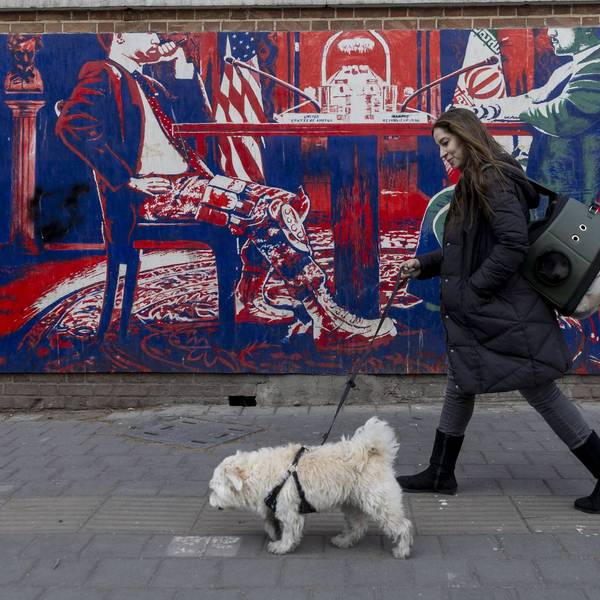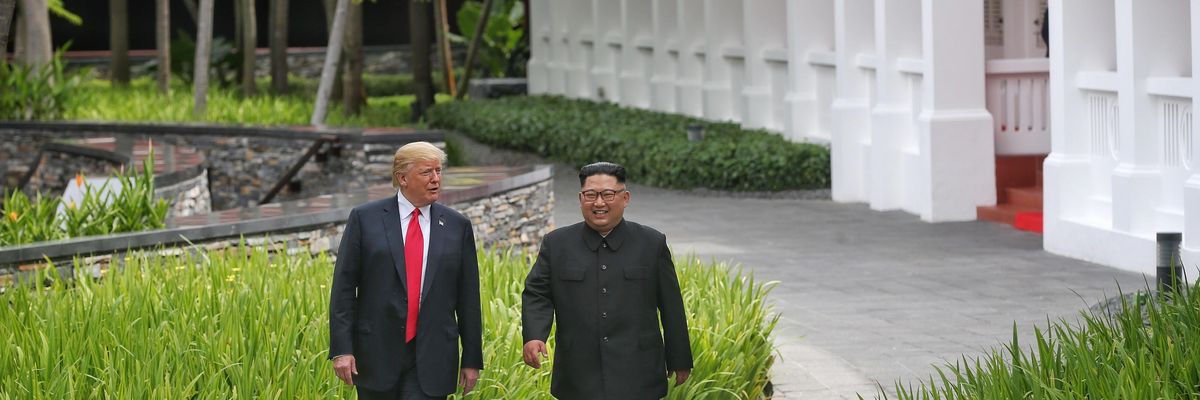Today's historic Singapore Summit, the first meeting of a U.S. president and North Korean leader, has been knocked for too many concessions by the U.S. But against a backdrop of possible nuclear war, it would be overly cynical not to recognize the meeting's potential for good.
At best, the meeting set the stage for North Korea's denuclearization, and possibly even an end to the nearly 70-year-old, stalemated Korean War. If you're against war, this is a good development.
Just six months ago, reasonable people had reasonable fears of the world's first two-sided nuclear war, as President Trump and North Korean leader Kim Jong Un traded middle-school insults.
The U.S. spends more than 20 times as much on war and militarism as we do on diplomacy each year.
There are still countless ways the negotiations could go wrong, and real reasons to fear that members of both the administration and opposition would allow that to happen. But this moment should also help us generalize to a larger truth: diplomacy offers chances for bigger gains, and smaller losses, than war.
Yet the U.S. spends more than 20 times as much on war and militarism as we do on diplomacy each year.
Our choices have been stark. The U.S. chose war in Iraq over diplomacy in 2003. Our leaders chose certain risk over likely reward by abnegating the Iran nuclear deal. And they chose a lone plunge backward over a carefully planned march forward when they stepped back from the Paris climate accord. This must not happen when it comes to the North Korea negotiations.
The relative costs of war compared to diplomacy are horrifying. The current wars in Iraq and Afghanistan have cost the U.S. $5.6 trillion, and 6,800 U.S. soldiers have lost their lives. That doesn't include non-fatal casualties, or the human or economic costs of PTSD or family stress that echo far beyond the battlefield. And it doesn't count the hundreds of thousands of non-U.S. innocent civilians who have been needlessly killed. A full-scale war with North Korea would likely be many times worse.
Diplomacy is not just the better way. It's the only way.
The North Korea negotiations are far from over, and could still tip from a fragile diplomacy back to middle-school insults and perhaps even to war. But we can and should be more optimistic than that. Diplomacy is not just the better way. It's the only way.
For the Korean talks to work, this administration will have to value diplomacy more than it did in its narrow-minded rejection of the Iran deal. It will have to value diplomacy more than it did when it pulled out of the Paris climate agreement. There's so much to gain from open communication and keeping our word. And there's so much more to lose if we allow things to fall apart.




